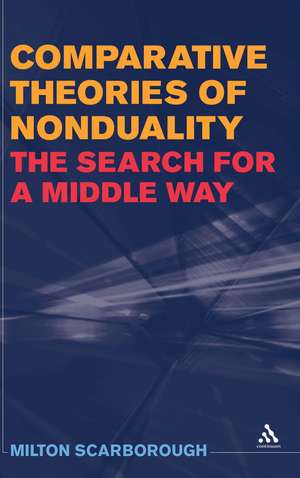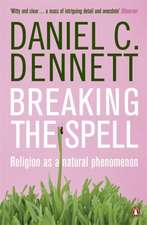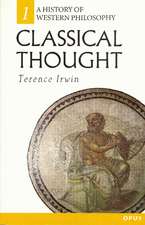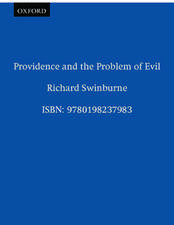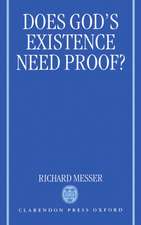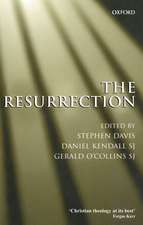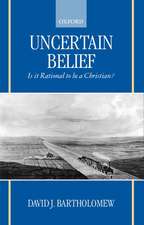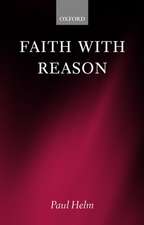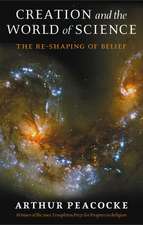Comparative Theories of Nonduality: The Search for a Middle Way
Autor Prof Milton Scarboroughen Limba Engleză Paperback – 19 oct 2011
It is a commonplace that while Asia is nondualistic, the West, because of its uncritical reliance on Greek-derived intellectual standards, is dualistic. Dualism is a deep-seated habit of thinking and acting in all spheres of life through the prism of binary opposites leads to paralyzing practical and theoretical difficulties. Asia can provide no assistance for the foreseeable future because the West finds Asian nondualism, especially that of Mahayana Buddhism, too alien and nihilistic. On the other hand, postmodern thought, which purports to deliver us from the dualisms embedded in modernity, turns out to be merely a pseudo-postmodernism. This book's novel idea is that the West already contains within one of its more marginalized roots, that of ancient Hebrew culture, a pre-philosophical form of nondualism which makes possible a new form of nondualism, one to which the West can subscribe. This new nondualism, inspired by Buddhism but not identical to it, is an epistemological, ontological, metaphysical, and praxical middle way both for the West and also between East and West.
| Toate formatele și edițiile | Preț | Express |
|---|---|---|
| Paperback (1) | 257.32 lei 6-8 săpt. | |
| Bloomsbury Publishing – 19 oct 2011 | 257.32 lei 6-8 săpt. | |
| Hardback (1) | 891.03 lei 6-8 săpt. | |
| Bloomsbury Publishing – 20 feb 2009 | 891.03 lei 6-8 săpt. |
Preț: 257.32 lei
Nou
Puncte Express: 386
Preț estimativ în valută:
49.25€ • 51.02$ • 41.10£
49.25€ • 51.02$ • 41.10£
Carte tipărită la comandă
Livrare economică 21 martie-04 aprilie
Preluare comenzi: 021 569.72.76
Specificații
ISBN-13: 9781441159021
ISBN-10: 1441159029
Pagini: 248
Dimensiuni: 156 x 234 x 13 mm
Greutate: 0.35 kg
Editura: Bloomsbury Publishing
Colecția Continuum
Locul publicării:London, United Kingdom
ISBN-10: 1441159029
Pagini: 248
Dimensiuni: 156 x 234 x 13 mm
Greutate: 0.35 kg
Editura: Bloomsbury Publishing
Colecția Continuum
Locul publicării:London, United Kingdom
Caracteristici
Argues that there is a middle way for the West between an uncritical reliance on Greek-based intellectual standards and the excessively nihilistic and alien nondualism of Buddhism: namely, the pre-philosophical nondualism of its own Hebraic cultural root.
Notă biografică
Milton Scarborough is Emeritus Professor of Religion and Philosophy at Centre College, Kentucky, USA.
Cuprins
Chapter One: Western Dualism and Buddhist Nondualism
A. Dualism Observed
B. Dualism Defined
C. Dualism Applied.
Buddhist Nondualism and the Middle Way
Chapter Two: Hebrew Pre-Philosophical Nondualism
A. Metaphysical Nondualism
1. Heaven and Earth
2. Finite and Infinite
3. Essence and Existence
4. Body and Soul
5. Time and Eternity
B. Epistemological Nondualism
Chapter Three: Hebrew Nondualism and Social Reality
A. Covenant as Sunyata
B. The Prophets and Sunyata
1. King and Subjects
2. Rich and Poor
3. Priests and Laiety
4. Israel and the Nations
4. Good and Evil
C. Alleged and Real Differences Between Asian Nondualism and
Hebrew Nondualism
Chapter Four: From Omniscience to Ignorance
A. The Foundations of Western Dualism
B. The Slippery Slope of Ignorance
C. Rummaging Through the Ruins
D. Critique
Chapter Five: A Western, Nondual Epistemology
A. Markers of "Unheard of Knowledge"
B. The Tacit Dimension
C. Implications, Comparisons, Extensions
D. The Polanyian Difference
E. The Body
F. The Middle Way
A. Dualism Observed
B. Dualism Defined
C. Dualism Applied.
Buddhist Nondualism and the Middle Way
Chapter Two: Hebrew Pre-Philosophical Nondualism
A. Metaphysical Nondualism
1. Heaven and Earth
2. Finite and Infinite
3. Essence and Existence
4. Body and Soul
5. Time and Eternity
B. Epistemological Nondualism
Chapter Three: Hebrew Nondualism and Social Reality
A. Covenant as Sunyata
B. The Prophets and Sunyata
1. King and Subjects
2. Rich and Poor
3. Priests and Laiety
4. Israel and the Nations
4. Good and Evil
C. Alleged and Real Differences Between Asian Nondualism and
Hebrew Nondualism
Chapter Four: From Omniscience to Ignorance
A. The Foundations of Western Dualism
B. The Slippery Slope of Ignorance
C. Rummaging Through the Ruins
D. Critique
Chapter Five: A Western, Nondual Epistemology
A. Markers of "Unheard of Knowledge"
B. The Tacit Dimension
C. Implications, Comparisons, Extensions
D. The Polanyian Difference
E. The Body
F. The Middle Way
Recenzii
'Not only does this elegant and intelligent book help to free theology from its long domination by a discredited form of dualistic Platonism, but it does this through an important contribution to Christian-Buddhist Dialogue. This is achieved by an illuminating discussion of phenomenology that shows how this tradition is congenial to a fresh reading of the poetry of the Hebraic sources-and by showing how phenomenology is the natural meeting-point for a conversation with the great Eastern philosophers who have used its language to articulate some of the insights of their own non-dualist Zen tradition and to express their reservations about the dualism of traditional theology.' -- Michael McGhee, Senior Fellow, Department of Philosophy, University of Liverpool, UK
"Scarborough's stimulating book offers and extended argument for what he terms a middle way that would have a far-reaching, even revolutionary impact on Western ways of thinking and acting. [His] achievement has significant ethical, religious, epistemological, and ontological dimensions, but it is the metaphysical dimension that Scarborough suggests crucially underlies and unifies the various other expressions of the middle way. [...] Comparative Theories of Nonduality creatively explores territory not even visible from the well trodden paths of most philosophical discourse. Scarborough interprets and integrates three distinctly different metaphysical perspectives in constructing his middle way: the ancient Hebrew worldview, Buddhist nondualism, and Polanyi and Merleau-Ponty as representatives of a minority perspective within Western Philosophy. [...] a distillation of a lifetime of thinking and teaching that I find both unique and largely persuasive. It is a book that deserves serious attention. [...] Comparative Theories of Nonduality is a brave, ground-breaking work." -- Tradition and Discovery, Walter Gulick
"Scarborough's stimulating book offers and extended argument for what he terms a middle way that would have a far-reaching, even revolutionary impact on Western ways of thinking and acting. [His] achievement has significant ethical, religious, epistemological, and ontological dimensions, but it is the metaphysical dimension that Scarborough suggests crucially underlies and unifies the various other expressions of the middle way. [...] Comparative Theories of Nonduality creatively explores territory not even visible from the well trodden paths of most philosophical discourse. Scarborough interprets and integrates three distinctly different metaphysical perspectives in constructing his middle way: the ancient Hebrew worldview, Buddhist nondualism, and Polanyi and Merleau-Ponty as representatives of a minority perspective within Western Philosophy. [...] a distillation of a lifetime of thinking and teaching that I find both unique and largely persuasive. It is a book that deserves serious attention. [...] Comparative Theories of Nonduality is a brave, ground-breaking work." -- Tradition and Discovery, Walter Gulick
